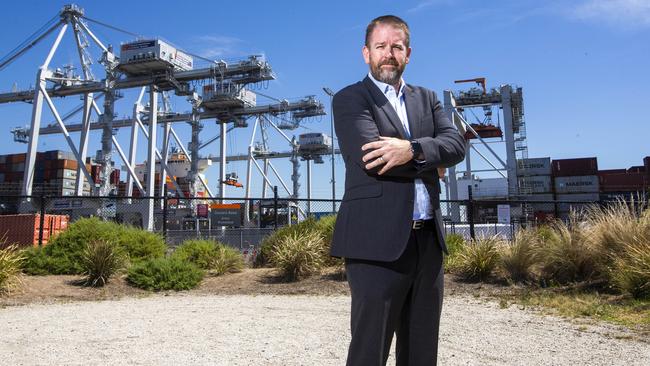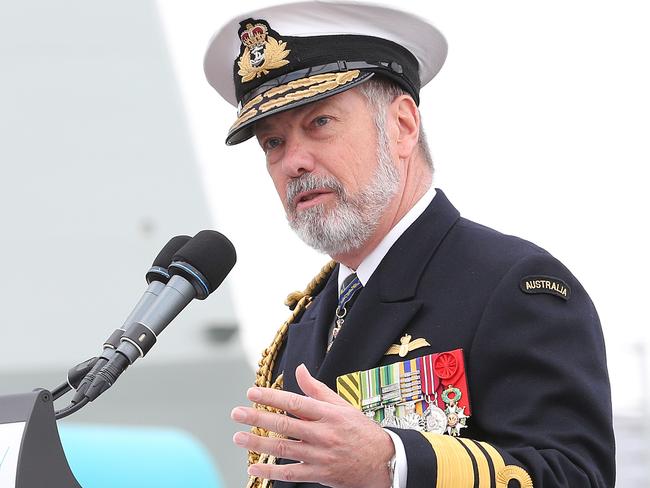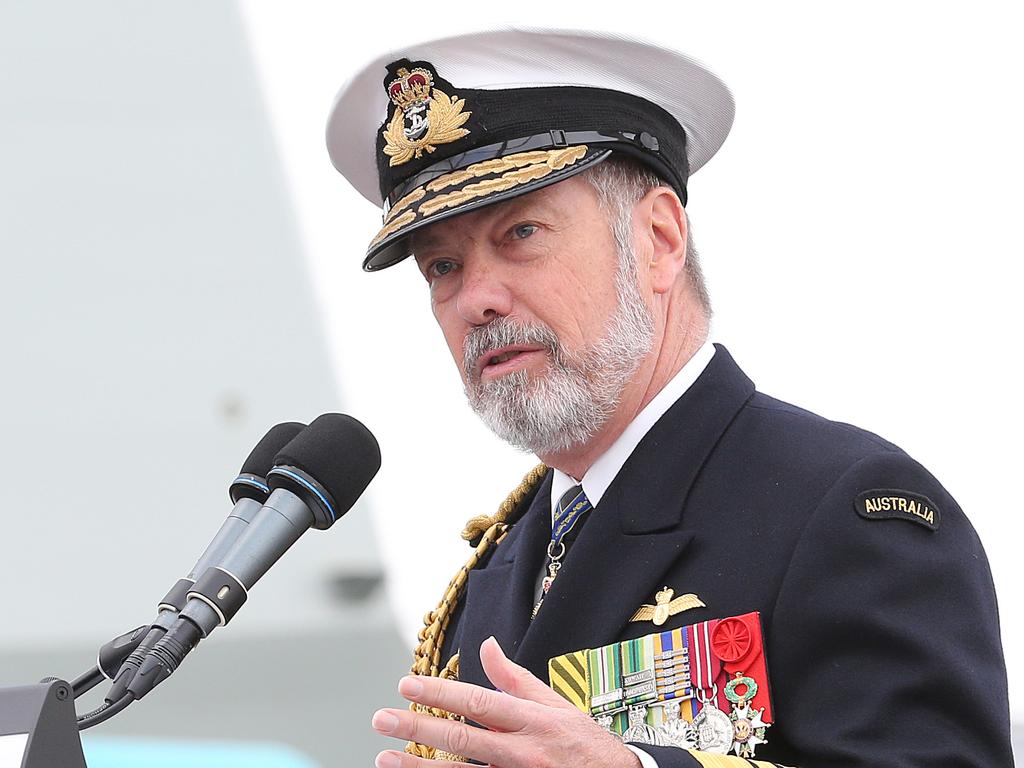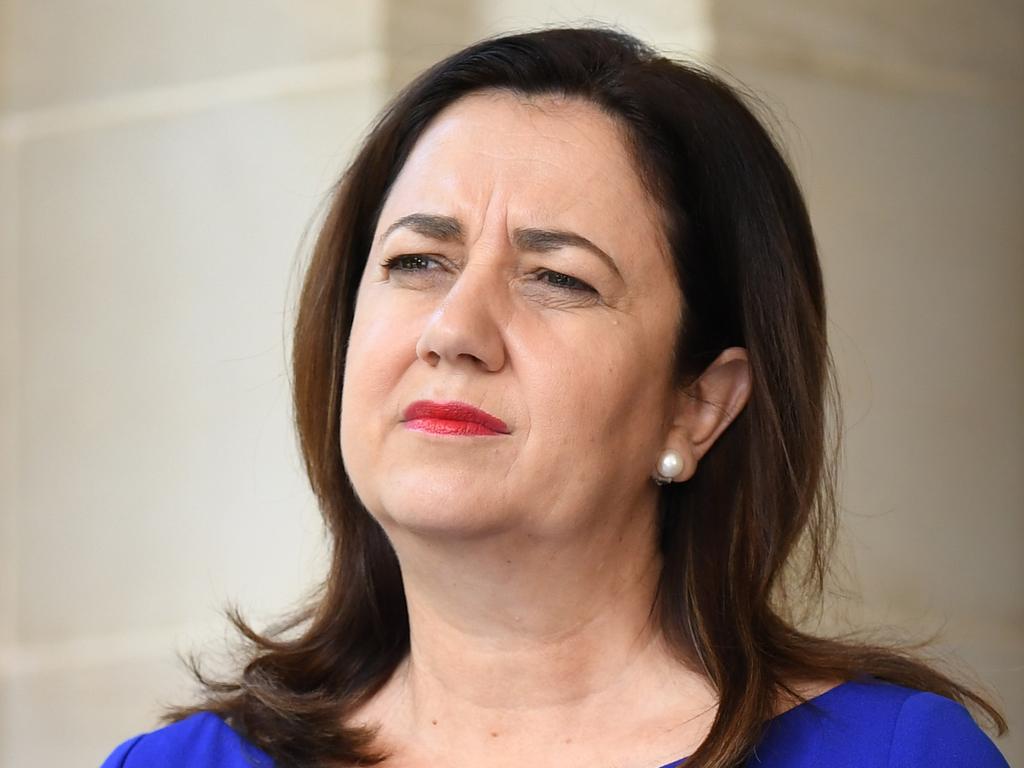Shrinking merchant fleet leaves Australia exposed
There are now just 13 Australian-flagged or controlled cargo vessels — Britain has 470 — leaving the nation dependent on foreign shipping for critical supplies in an emergency.

Australia is so dependent on foreign shipping that obtaining critical supplies during a national emergency can’t be guaranteed, says former Chief of Navy Tim Barrett.
“Issues around COVID and regional tensions mean that only now we are discovering that we are in a very parlous state,” Vice-Admiral (retired) Barrett said, pointing to the new assertiveness of China in the region. “The issue is around resilience to fuel supplies, pharmaceuticals, agricultural equipment, anything that’s critical to society.”
Admiral Barrett is a board member of Maritime Industry Australia Limited, the body that represents the Australian cargo industry.
According to MIAL chief executive Teresa Lloyd, there are now just 13 Australian-flagged or controlled cargo vessels. Thirty-odd years ago there were 100. Britain still has 470 such commercial ships.
“If you don’t have the capacity to requisition ships, there’s not much you can do in an emergency,” Admiral Barrett said. A national government has legal authority in a crisis to requisition civilian ships, which carry its flag or are controlled by its companies, but has no authority over foreign ships.
Thus the lack of a commercial cargo fleet leaves Australia naked in any emergency that interrupts essential supplies.
Admiral Barrett said Australia was suffering “sea blindness”.
“It really is a lack of understanding of the significance of the dependence we face,” he said.
Innes Willox of the Australian Industry Group said Australia was now more exposed than it had been for decades: “We are more vulnerable to economic shock than we have been quite possibly since World War II, given geopolitics and the fragmented nature of our core assets.”
Former deputy prime minister and Nationals leader John Anderson said the government should “urgently resolve this issue when we see how dangerous the world has become. We need to be sure we have our essential supply lines secured and can bring in critical materials”.
Peter Jennings, head of the Australian Strategic Policy Institute, told The Australian: “A country with no capacity to control its cargo shipping leaves itself at the mercy of the international environment.”

Deputy Prime Minister and Transport Minister Michael McCormack said “the government has consistently tried to rebuild the capacity but has been unable to get it through parliament”.
He said that industry advice was that the cost of owning and crewing an Australian vessel was significantly higher than a foreign-flagged ship and if that cost were passed on to exporters it could adversely affect key industries, such as mining, construction and agriculture.
He said the government had ruled out either complete deregulation of coastal shipping, the establishment of a strategic fleet or high-cost subsidies.
In response to Mr McCormack’s comments, Ms Lloyd said: “The government has made no efforts to do anything to incentivise or encourage an Australian shipping industry. The only thing they are even working on relates solely to the regulation of coastal trading, which is already dominated by foreign ships.”
COVID-19, in combination with geopolitics, has disrupted international freight shipping much more than has generally been realised, Admiral Barrett told The Australian, as the crews of ships carrying Australian coal marooned off the coast of China have shown.
Many international ships are flagged by countries of convenience — Panama, the Marshall Islands, Liberia. When these ships get into political or even humanitarian trouble they often lack a sovereign power to come to their rescue.
No rich nation can be price-competitive against crews from the developing world. But, Ms Lloyd points out, most developed nations have created sufficient corporate and tax incentives to keep a significant merchant fleet in operation.
These arrangements often involve a “second register” of ships controlled by the country in question, even if not formally flagged by those countries.
The first-world country involved generally provides the officers to run the ships.
The crew serving under those officers often come from developing nations and work at lower rates of pay.
Unless rich nations make arrangements like this they cannot sustain a cargo shipping industry. The alternative is that a nation loses its commercial cargo ships altogether. Almost all the ships working to and around Australia are foreign owned, foreign flagged and have developing world crews.
Peter Court, grandson of the former West Australian premier Charles Court, was one of BHP’s last cadets trained as a ship master. Now in his mid-40s, he has left the shrinking shipping industry and laments the lack of any seaborne career opportunities for young Australians.
“I’m 46 in a couple of months and my cohort no longer has jobs doing the technical work. As a nation we are losing the skills,” he said.
He worked for several years as a harbour pilot and says he saw “Dutch officers, Danish, UK, French, American” but not Australian. “We’ve lost the assets, we’re down to 13 ships, and now we’re losing the skills,” he said.
The progressive loss of skills meant, Mr Court said, that “turning it round now would be much easier than it will be in five years’ time”.
Ms Lloyd contrasts the Australian situation with that of Britain: “The UK saw this problem in the early 2000s and addressed it, they made the decision to keep the skills and keep the assets.”
Mr Anderson said the dreadful record of industrial relations on the ports had made governments wary of reviving those forces, but he believed the security considerations were so important that the government must address and reverse the decline of Australian merchant shipping.








To join the conversation, please log in. Don't have an account? Register
Join the conversation, you are commenting as Logout